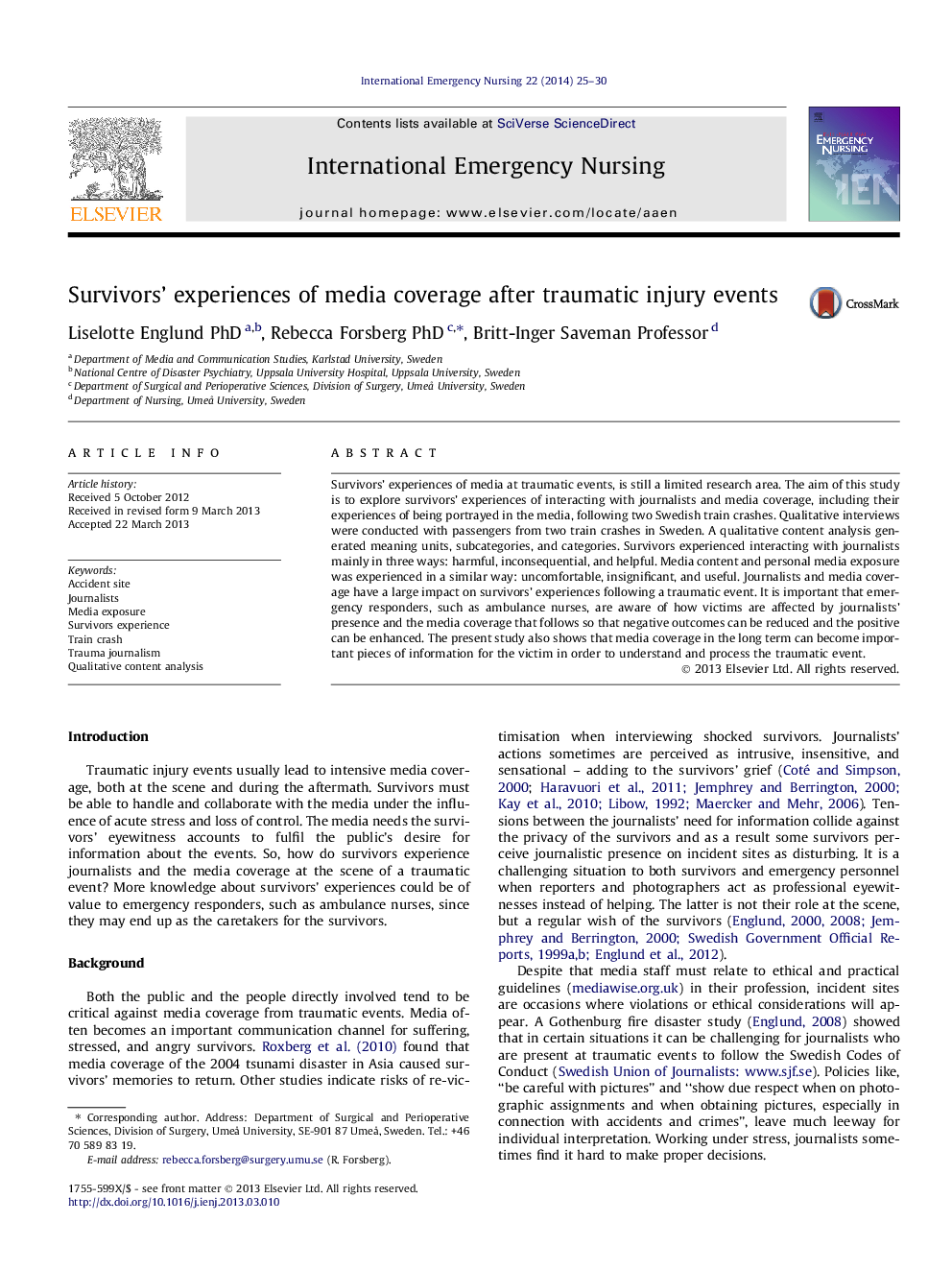| Article ID | Journal | Published Year | Pages | File Type |
|---|---|---|---|---|
| 2609576 | International Emergency Nursing | 2014 | 6 Pages |
Survivors’ experiences of media at traumatic events, is still a limited research area. The aim of this study is to explore survivors’ experiences of interacting with journalists and media coverage, including their experiences of being portrayed in the media, following two Swedish train crashes. Qualitative interviews were conducted with passengers from two train crashes in Sweden. A qualitative content analysis generated meaning units, subcategories, and categories. Survivors experienced interacting with journalists mainly in three ways: harmful, inconsequential, and helpful. Media content and personal media exposure was experienced in a similar way: uncomfortable, insignificant, and useful. Journalists and media coverage have a large impact on survivors’ experiences following a traumatic event. It is important that emergency responders, such as ambulance nurses, are aware of how victims are affected by journalists’ presence and the media coverage that follows so that negative outcomes can be reduced and the positive can be enhanced. The present study also shows that media coverage in the long term can become important pieces of information for the victim in order to understand and process the traumatic event.
